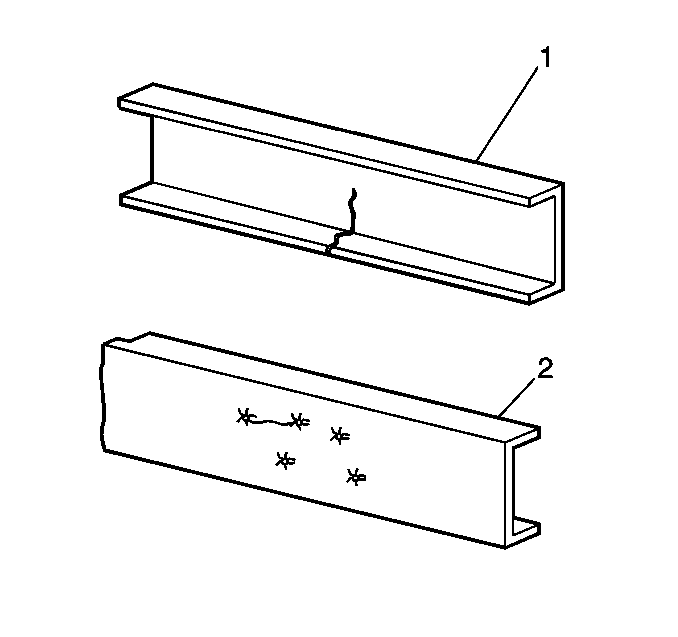There are five types of misalignment:
Refer to
Frame Conditions Description
for more information on these 5 conditions.

If the vehicle is involved in a collision, inspect for stress crack (1)
and/or spotted stress (2) in the frame or for signs of damage.
A misaligned underbody rail may have moved in the following directions:
| • | Forward from the original location of the rail |
| • | Up or down from the original location of the rail |
| • | To the side of the original location of the rail |
Inspect the rails for all of these possibilities.
The easiest way to check alignment is using tramming gauges and universal
measuring systems constructed for this purpose. Detailed instructions are
normally supplied with the equipment at the time of purchase. Instructions
for equipment usage are not provided in this manual.
Ensure that the vehicle is parked on a level surface.
Certain conditions require preliminary inspections before actually examining
the underbody structure.
| • | If suspension or axle problems exist, the vehicle's frame may
appear to be out of alignment. |
| • | If an axle has shifted, a diamond or a sidesway may appear to
exist when neither condition exists. |
| • | If a spring is weak, the vehicle may appear to have a twisted
underbody structure. |
A visual inspection of the top and the bottom flanges of each rail may
reveal the specific area where sag or buckle exists. In the case of sag, wrinkles
may appear on the top of the upper flange. Wrinkles on the bottom
of the lower flange are definite evidence of buckle.

